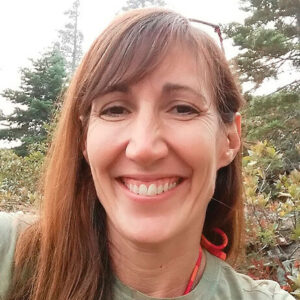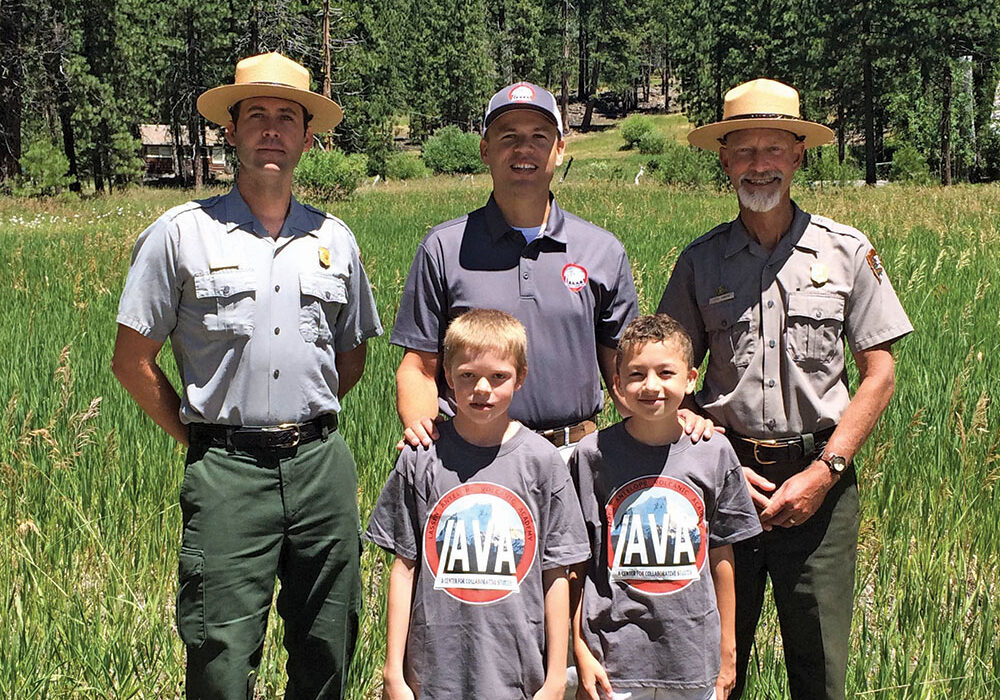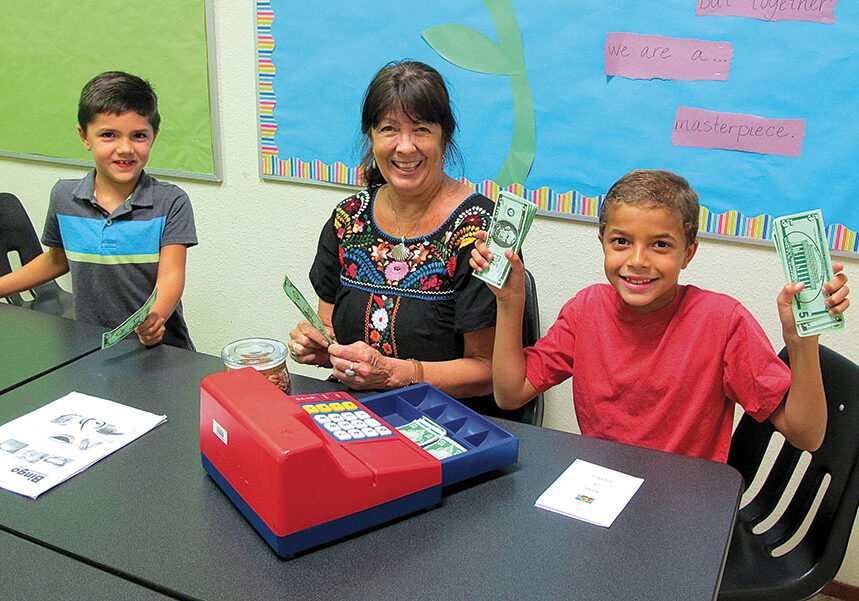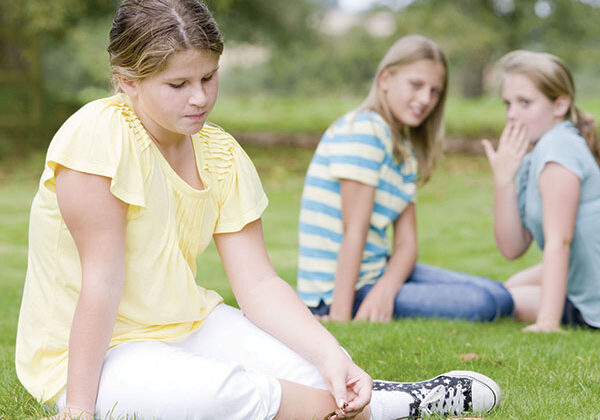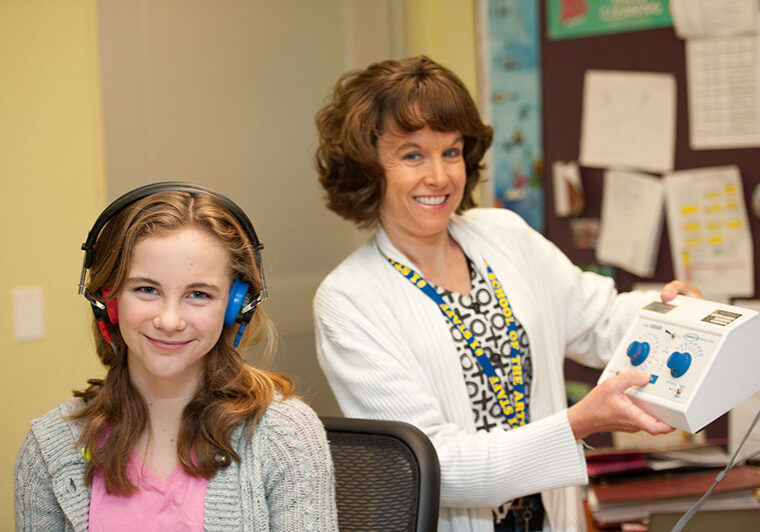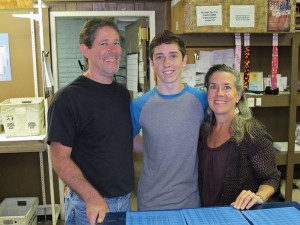
Erin Friedman with her son Joe and her husband Craig.
Most parents agree that a good education is an important foundation for their child’s future success. The way children learn however, can be as varied as the children themselves. While traditional classrooms and textbooks are one method, many young people throughout the North State are exploring ways of learning through real-world experiences.
Sixteen-year-old Joe Friedman is a recent homeschool graduate who has never attended a brick and mortar school, but has instead had a hands-on, interest-based education. From a young age, Joe, along with his older siblings, helped out at the family business. His mother Erin notes, “They were learning skills in customer service, banking, cashiering and sales. I believe those skills have served them well as they all went on to jobs in the community. All of my kids were always very confident and comfortable communicating with people of all ages.”
Erin says that this past year, Joe has been focused on dance, practicing three to four hours a night, both in class and at home. “He’s a night owl, as are a lot of teens, and I love that homeschooling allows him to work when he has energy and can focus.”
Joe is now teaching private dance lessons and spent a good deal of the summer coaching his older brother Max and dance partner Erin Rader for the Dancing with the Stars Shasta County Style competition.
Kiira Mancasola is another former homeschooler who grew up following her passions. “My education was totally integrated with the other factions of my life, and play was a big part of that. Even math workbooks seemed like a game to me, since my goals were self-appointed. Music, literature, sports – everything I spent time learning during childhood – was an authentic interest of mine, and I’m glad that I was able to dedicate so much time to them as a child, rather than focusing on requirements that weren’t meaningful to who I am as an individual.”
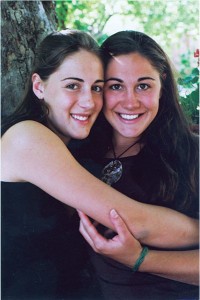
Sydney (left) and Kiira (right) Mancasola.
Kiira successfully moved on from homeschooling to graduate from Stanford; she teaches English at Rutgers University. “My pursuit of writing stems directly from a love of literature that I credit to many, many hours of reading. As a homeschooler, I was allowed to read whatever I wanted, whenever I wanted – everything from historical nonfiction to Tolstoy. The range of material I read contributes to my flexibility as a writer today.”
“I’m grateful for my experience as a homeschooler because it taught me to take ownership over my own education,” Kiira adds. “Our education is never complete, and no single model can fully prepare us for adulthood. We must always be learning new skills, lessons and information, in order to understand the world and tackle the problems around us. Homeschooling gave me an awareness of this fact at a young age. As a result, I’ve always been fiercely motivated to learn and grow, even today.”
When looking at a non-traditional approach to learning, many people question if children are “learning the right things” or “keeping up with other kids their age.” Kiira’s younger sister Sydney admits wondering about this herself as a teenager. “Now as an adult, I can happily say that I wouldn’t trade my education for any other in the world. Homeschooling really did give me the freedom to pursue my specific interests, and more importantly, it let me preserve my love for learning.”
Sydney fondly recalls spending time exploring things like tree climbing, baking, extreme crafting, writing poetry and even entrepreneurship, and says that she also learned time management and how to self-motivate and make things happen in the process. “Being a child is all about curiosity and growth, two things that are essential ingredients for education. Life presents the challenges, and my parents always encouraged us to ask questions. There were no wrong questions, and there were no wrong subjects either. Whatever spiked our curiosity was where our learning was directed. It’s a very authentic form of education, because when you are genuinely interested in learning about something, you are far more likely to retain the information you seek.”
From job interviews to collaborative environments in work and college settings, Sydney says that the skills she learned in her non-traditional younger years have served her well in life. “Having an inherently different childhood is something that has come to my advantage quite a lot.” After homeschooling, Sydney went on to earn a Bachelor’s degree in music and is now an opera singer at Oberlin Conservatory of Music. “I was a musician long before pursuing a formal education in the subject,” Sydney says, adding, “Homeschooling definitely allowed me to give more time to my music.”
Sierra Dank has found that vacations are an exciting way to combine learning and fun for her five daughters. She notes, “We enjoy traveling as a family, and have found numerous opportunities for education along the way. Homeschooling has given our family the freedom to learn about the fascinating world around us in natural, engaging, and family-friendly ways.” In preparation for trips, the family researches and studies the history, environment and special features of their destination. When they arrive, the hands-on exploration begins, and Sierra says the information learned becomes rooted in experience and enjoyment: “It will not only be retained for future schooling, but will become treasured memories as well.”
Robin and Gary Overstreet’s children have been enrolled in a variety of educational settings, but the couple has always incorporated real-life learning into their lives. Robin says that giving kids independence and encouraging them to help out from a young age has empowered her kids, and fostered their love of learning. “From the time that they were 3 and 4 years old, they were writing lists and helping on shopping trips. They never thought of it as school.”
Now homeschooling, the Overstreet family members work on group and solo projects that make up the children’s education. 10-year-old daughter Gracie is learning about business through making and marketing homemade jams, while 12-year-old son Talon is learning similar skills in a different way, by collecting and selling sports memorabilia and refurbishing video game consoles.
Reading together, watching documentaries, using online resources and volunteering with the elderly are all a part of the family’s learning path, and the Overstreets say that it’s exciting to see their children chasing dreams. Robin notes that while her children score well on standardized tests, their educational style is about much more than test scores. “It’s about spending time with your kids and really listening to them. It’s also about teaching them the importance of making a difference and bringing happiness into the world.”
Homeschool Resources
California Homeschool Network (CHN). Statewide grassroots organization supporting homeschool families. http://www.californiahomeschool.net. County contacts: Shasta/Tehama: (530) 347-2200. Other counties call CHN directly at (800) 327-5339.
Chico Homeschoolers. All-inclusive homeschooling support & activities network for Chico & surrounding areas. (530) 228-7078 or http://www.facebook.com/ groups/ButteHomeSchoolers.
Homeschool Association of California (HSC). Supports & promotes the entire spectrum of homeschooling. Offers California’s largest homeschooling conference annually, early August in Sacramento.
Conference info:
http://www.hscconference.com or (707) 310-0000. HSC website: http://www.hsc.org. County contacts:
- Butte: (530) 228-7078;
- Shasta/Tehama: (530) 347-5240 or (530) 244-2338;
- S. Siskiyou County: (530) 926-5574.
- HSC special needs homeschooling contact: (916) 730-6401.
Redding Homeschool Network. A volunteer, free support & activities group for Redding area homeschooling families. (530) 347-5240.
Posted in: Education
Comment Policy: All viewpoints are welcome, but comments should remain relevant. Personal attacks, profanity, and aggressive behavior are not allowed. No spam, advertising, or promoting of products/services. Please, only use your real name and limit the amount of links submitted in your comment.


